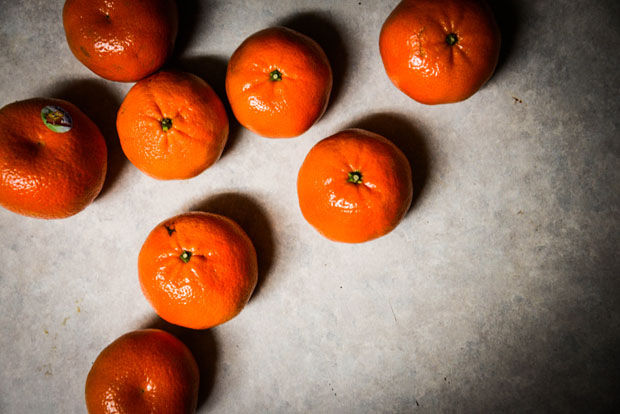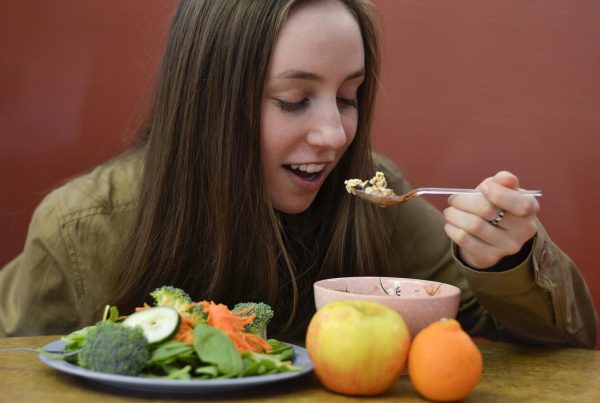Chinese New Year feast traditions
February 18, 2015
Thursday marks the start of Chinese New Year (CNY), another excuse in the calendar for many Singaporeans to indulge in excess and gorging because Christmas and New Year’s wasn’t enough.
It’s a funny time for those who practice Lent. We Chinese are fairly pragmatic people and my grandmother, who is a relatively staunch Catholic, told me she is excused since CNY is more important. Go figure.
The traditions my family practices back home are quite similar to many other Singaporean Chinese families. There’s typically a reunion dinner where the entire family gathers (with the grandparents as the anchor), certain foods are eaten, people visit distant relatives and a general good time is had with 15 days of festivities.
For all its traditions and customs, the idea of CNY is like Thanksgiving, an excuse to get the family together. Of course, it is the traditions and customs that makes it CNY and not just another Sunday lunch.
Symbolism plays a huge part in Chinese culture. However, it may evolve and be subtly influenced in different countries. Everything in CNY is done with meaning in mind. For example, red, being the color de jour, symbolizes good fortune due to its similarity in sound. This is the same for numbers, colors, and other things based on word play that is interwoven into Mandarin and its dialects.
Oranges or mandarins are always a house visit gift because they sound similar to “luck” and “wealth,” are portable, and of course, combat scurvy. They are given in pairs as odd numbers are associated with funerals – even numbers are desired except for four, which sounds similar to death, while eight (fortune) is considered the prime number in the Chinese obsession for wealth and prosperity.
This creates the ridiculous situation of a perpetual supply of oranges being received and given away. Shame is brought upon the visitor if they turn up to a house without oranges. Not really, people are quite relaxed about these things but nonetheless, it’s the custom.
Symbolism, however, doesn’t just stop at the color, number, or practices – it’s also strongly seen in the food we eat, playing a dichotomous role for superstition and flavor.
Yu Sheng (or Yee Sang if you’re Cantonese) epitomizes, to me anyway, CNY in the Singapore-Malaysia region. It originated in Singapore when it was still part of Malaysia (the dish was concocted in ‘64 and independence came in ‘65) and thus, is relatively unheard of in other parts of the Chinese world.
Essentially a salad of raw fish (generally salmon), shredded root vegetables, condiments, fruits and dressed in plum sauce, the dish was created by four master chefs who were known as the “Four Heavenly Culinary Kings” of Singapore back then. No joke.
If you think fondue is a fun dish for its interaction, Yu Sheng takes the cake. Generally presented on the biggest platter one can find, each component is described to the diners for its meaning and purpose.
The fish for example (“yu”) sounds like abundance and one says “nian nian you yu,” meaning “Abundance through the year.”
Pomelo or lime juice adds luck and auspiciousness, followed by the phrase “da ji da li,” meaning “Good luck and smooth sailing.”
This is true for other ingredients, including pepper (attracting money), oil (encouraging money), shredded carrots (more luck), shredded white radish (progression) and green radish (eternal youth), peanuts (gold and silver), sesame seeds (prosperity for business), deep fried cracker-crouton like things (more gold) and the Yu Sheng dressing with a base of plum sauce in the hopes that “Life will always be sweet.”
Once every ingredient has been given its due, everyone stands up around the table (round tables are standard in Chinese households) and with longer-than-normal chopsticks, we toss the entire salad into a mess.
This is what we call “lo hei,” a Cantonese phrase of “tossing up good fortune,” as while tossing the salad, auspicious phrases are said out loud. They can be anywhere from “hope to have good business/harvest,” to a more contemporary “I hope I graduate in four years.” The higher the toss, the more fortune one gets, and inevitably, the messier it is.
Of course the mess is the fun, and one of the greatest joys of CNY and eating Yu Sheng. This is our Thanksgiving turkey except that people are starting to have Yu Sheng increasingly earlier on. I recently spoke to my mom and at an office party she already had a Yu Sheng a week ago – imagine having turkey a week before Thanksgiving, and then eating it again for at least three or four more times in the following days.
I’ll talk about a few more things we eat next week, and until then, have a very happy Chinese New Year to you all, or “gong xi fa cai” (literally, “wishing you enlarge your wealth”), and remember, wear red and buy a pair of oranges.



















